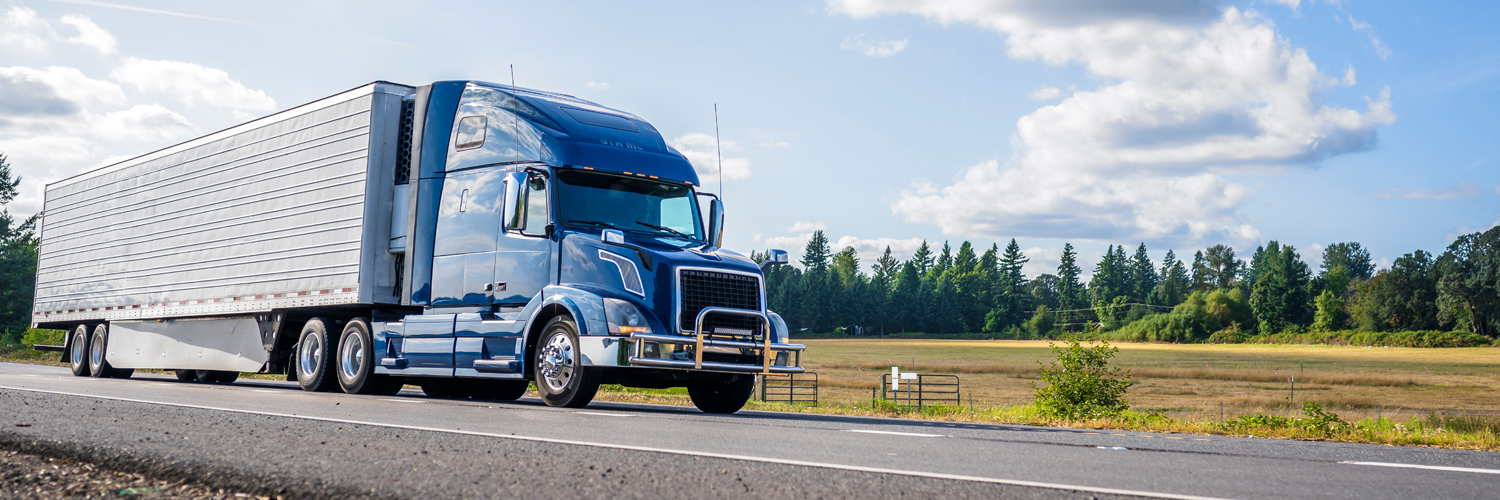Need coverage? Get a quote!
What is commercial truck insurance?
Operating commercial trucks generally requires vehicle insurance that goes beyond the standard terms of auto insurance. The size and weight of trucks typically require that Texas businesses which use them get commercial truck insurance.
Commercial truck insurance is a specialized form of vehicle coverage that’s designed for larger trucks. Policy terms are usually adjusted for the size, weight, and cargo of these trucks.
Which businesses in Texas need to carry commercial trucking insurance?
Most Texas businesses using trucks should have commercial trucking insurance. State law usually requires coverage, and this tends to be the best option for trucks. Leases and loans can come with their own coverage requirements as well.
Policies are readily available for most different trucks that businesses might use. An agent who knows commercial trucking insurance should be able to easily find policies for:
- Tractor-trailers (dry vans, tankers, reefers, lowboys, step decks, flat beds, etc.)
- Specialized trucks (dump trucks, cement mixers, crane trucks, fire trucks, etc.)
- Straight trucks (box trucks, reefers, delivery trucks, sleeper cabs, etc.)
- Pickups (standard pickups, duallys, crew cabs, extended beds, etc.)
Because these trucks are used for so many different purposes, many different businesses might purchase a policy. Commercial trucking insurance is regularly used by businesses ranging from local florists and movers, to interstate freight companies and commercial construction companies.

What coverages can commercial trucking insurance come with?
Commercial trucking policies offer a mix of coverage options, which can be tailored to a particular business’s and truck’s needs. Some common coverage options include:
Possible Coverages Available
- Physical Damage Coverage: Might insure trucks against damage in accidents or from other incidents.
- Interchange Coverage: Might insure trailers against damage in accidents or from other incidents.
- Trailer Cargo Coverage: Might insure cargo that’s loaded onto a truck or trailer, protecting against damage and loss.
- Liability Coverage: Might insure against accidents that the insured truck causes or contributes to.
- Bobtail Coverage: Might insure tractors when they’re not hooked up to a trailer; usually only for tractor-trailers.
- Downtime Coverage: Might insure trucks when they aren’t actually being driven, such as during overnight stops, loading, and unloading.
- Non-Trucking Coverage: Might insure trucks when they’re driven for personal rather than work purposes, such as to and from a driver’s residence.
- Uninsured/Underinsured Motorist Coverage: Might insure against accidents involving an uninsured or underinsured driver, and also hit-and-runs.
Physical Damage Coverage
Interchange Coverage
Trailer Cargo Coverage
Liability Coverage
Bobtail Coverage
Downtime Coverage
Non-Trucking Coverage
Uninsured/Underinsured Motorist Coverage
Some of these coverages may be required per Texas state law, loan or lease terms, and customer contracts. Businesses that drive trucks across state lines also might have to meet federal coverage requirements.
An insurance agent who specializes in commercial trucking can help businesses make sure they have all required coverages, and also any others that should be purchased for additional protection.

What types of cargo can commercial truck policies cover?
Commercial truck policies are able to cover virtually any legal cargo that might be loaded onto a truck or trailer. These policies regularly insure consumer goods, food products, construction materials, and many other items.
Certain cargos might require specialized cargo coverage. For instance, insuring live animals, especially valuable goods, or hazardous materials, could require particular coverage terms. An agent who knows commercial truck policies well should be able to find a suitable policy, though.
How much does insuring a commercial truck cost?
The cost of insuring commercial trucks variest widely. Insurance companies look at many different factors when setting premiums, often including:
- Type of truck being insured
- Truck’s size, weight, and value
- Weight and value of cargo
- Driver experience and endorsements
- Routes and milage driven
Businesses can find out how much insuring their truck or fleet will be by working with an independent insurance agent. Because an independent agent isn’t linked to any one insurer, they can compare custom quotes from several different companies.
Where can businesses get commercial truck insurance for their trucks?
If you need help insuring one or more commercial trucks that are registered in Texas, get in touch with the independent insurance agents at McKnight Insurance. Our agents have helped many businesses insure their trucks, and we’ll make sure you find commercial truck insurance that’ll keep your trucks protected when on the road.
McKnight Insurance Services Independent Agency in Mansfield Texas
Get in touch with one of our team members for questions or quotes!


